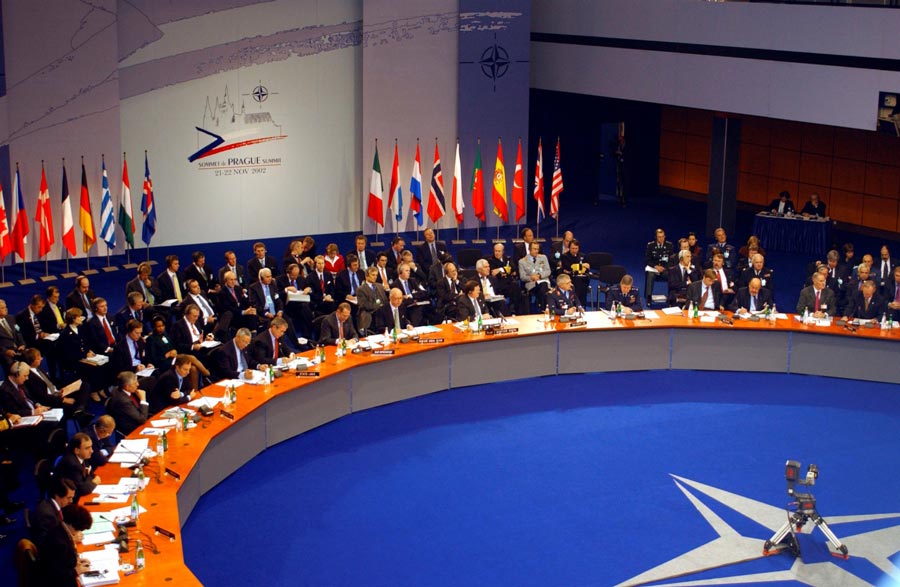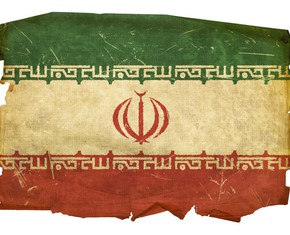The views expressed in our content reflect individual perspectives and do not represent the authoritative views of the Baha'i Faith.
The Parties agree that an armed attack against one or more of them in Europe or North America shall be considered an attack against them all and consequently they agree that, if such an armed attack occurs, each of them, in exercise of the right of individual or collective self-defence recognised by Article 51 of the Charter of the United Nations, will assist the Party or Parties so attacked by taking forthwith, individually and in concert with the other Parties, such action as it deems necessary, including the use of armed force, to restore and maintain the security of the North Atlantic area. – The NATO Charter, Article 5.
Know how to stop a bully? Unity. If one kid on the playground bullies others, and every kid on the playground rises up and unites to defend the bullied ones, the bully soon realizes he has to stop.
That’s the basic underlying idea behind the concept of collective security, exemplified in the NATO charter, first agreed to as an international treaty in 1949. The heart of that treaty—Article 5 above—says that “an armed attack against one or more… shall be considered an attack against them all…”
The NATO Charter, among other covenants, treaties and forces, has helped keep the peace in Europe and the United States for more than 70 years. It has contributed greatly to the current state of peace in the Western Hemisphere. It has provided a model for several other multinational alliances around the world. More nations are actively seeking to join NATO because the model has worked.

But Article 5 has only been invoked once—do you know when? Most people don’t realize that NATO made Article 5 operational after September 11, 2001, to defend the United States against further large-scale terrorist attacks like the ones on the World Trade Center and the Pentagon. Called Operation Eagle Assist, thirteen NATO nations provided troops and aircraft to sweep the skies over the US with NATO aircraft and detect any further airborne threats. Operation Eagle Assist lasted from October 4, 2001 until May 22, 2002.
Consider expanding that model for a moment—can you imagine a NATO Treaty for the entire planet? What if every nation agreed to Article 5? What if all countries committed themselves to a global covenant of peace?
That’s exactly what the Baha’i teachings propose:
The Great Being, wishing to reveal the prerequisites of the peace and tranquillity of the world and the advancement of its peoples, hath written: The time must come when the imperative necessity for the holding of a vast, an all-embracing assemblage of men will be universally realized. The rulers and kings of the earth must needs attend it, and, participating in its deliberations, must consider such ways and means as will lay the foundations of the world’s Great Peace amongst men. Such a peace demandeth that the Great Powers should resolve, for the sake of the tranquillity of the peoples of the earth, to be fully reconciled among themselves. Should any king take up arms against another, all should unitedly arise and prevent him. If this be done, the nations of the world will no longer require any armaments, except for the purpose of preserving the security of their realms and of maintaining internal order within their territories. This will ensure the peace and composure of every people, government and nation. – Baha’u’llah, Gleanings from the Writings of Baha’u’llah, p. 248.
As Baha’u’llah says in this important passage from his writings, for collective security to work nations must resolve to be reconciled, to be willing to subordinate any of their conflicting interests to the common good. Because war has become so deadly and dangerous when it breaks out anywhere in the world, and because so many nations now have catastrophically destructive nuclear weapons, this kind of global collective security arrangement has become an “imperative necessity… for the sake of the tranquillity of the peoples of the earth.”
Beyond the necessity, though, think of the good that could come from such a worldwide NATO-style treaty. If all of us worked toward a universal collective security agreement, it would benefit every person on Earth. Wars would become scarce and peace could become plentiful. Conflict-caused refugee crises would cease. We would stop killing each other. Our giant armies and stockpiles of armaments and weapons, which now cost us all enormous amounts, would shrink to manageable sizes. The world’s economy would flourish, with funds that once went to war going to educate all children, end poverty and protect the environment. The current peace in the Western Hemisphere would spread to the rest of the globe:
…the greatest bestowal of the world of humanity is Universal Peace, which must be founded, so that the realm of creation may obtain composure, the East and the West, which include in their arms the five continents of the globe, may embrace each other, mankind may rest beneath the tent of oneness of the world of humanity, and the flag of universal peace may wave over all the regions. – Abdu’l-Baha, Star of the West, Volume 4, p. 136.
If the oneness of the human world were established, all the differences which separate mankind would be eradicated. Strife and warfare would cease, and the world of humanity would find repose. Universal peace would be promoted, and the East and West would be conjoined in a strong bond. All men would be sheltered beneath one tabernacle. Native lands would become one; races and religions would be unified. The people of the world would live together in harmony, and their well-being would be assured. – Abdu’l-Baha, The Promulgation of Universal Peace, p. 264.
Next: The Baha’is of Colombia Call for Peace
















Comments
Sign in or create an account
Continue with Googleor